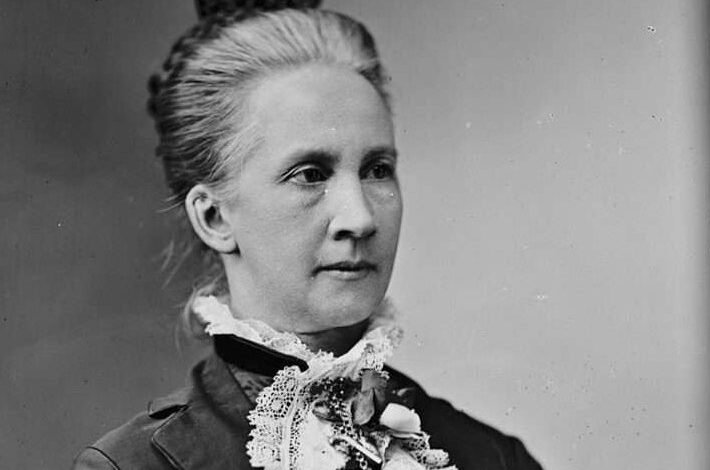The Legacy of Belva Lockwood


 In the quiet farmlands of Niagara County, New York, a woman was born who would lay the foundation for some of the greatest achievements in American legal history. Her name was Belva Ann Bennet Lockwood (1830-1917).
In the quiet farmlands of Niagara County, New York, a woman was born who would lay the foundation for some of the greatest achievements in American legal history. Her name was Belva Ann Bennet Lockwood (1830-1917).
While she never achieved the iconic stature of Ruth Bader Ginsburg — no Hollywood films or t-shirts with her face — Lockwood’s legacy is essential today, as we face growing threats to the integrity of our judiciary and the principles of justice she fought for.
Lockwood’s groundbreaking journey began long before Ginsburg shattered barriers. She made history as the first woman to argue a case before the U.S. Supreme Court —Kaiser v. Stickney (1880) and United States v. Cherokee Nation (1906). Her path to that milestone, however, was nothing short of a battle, one that mirrors the very struggles faced by women seeking justice today.
Born in 1830 in Royalton, NY, Lockwood was a progressive educator who took on the male-dominated world of law in the late 19th century. After moving to Washington D.C. in 1866, she applied to law school at Columbian College, only to be rejected for the “distraction” her presence would cause male students.
Undeterred, she pursued a law degree at National University Law School, ultimately becoming a respected lawyer and advocate for the marginalized. Her reputation grew to such prominence that she ran for president in 1884 and 1888 as the National Equal Rights Party candidate — the first woman ever to do so.
Yet, the barriers Lockwood faced were staggering. In 1867, the U.S. Supreme Court refused to admit her to the bar, declaring, “none but men are permitted to practice before us.”
A Wisconsin Chief Justice warned that women’s presence in courtrooms would “relax the public sense of decency.” A Maryland judge even argued that God Himself had ordained women’s inferiority in legal matters.
Lockwood fought these injustices at a time when women had no property rights, couldn’t keep their earned income, and were denied the right to vote. Still, she pressed on, becoming a successful lawyer who fought for women’s rights and social reforms—establishing herself as a pioneer for the legal profession.

 In 1908, Syracuse University awarded Lockwood an honorary doctorate in law. In 1983, the National Women’s Hall of Fame inducted her for her work advancing suffrage, equal pay, property law reforms, and world peace.
In 1908, Syracuse University awarded Lockwood an honorary doctorate in law. In 1983, the National Women’s Hall of Fame inducted her for her work advancing suffrage, equal pay, property law reforms, and world peace.
Lockwood wasn’t just a legal trailblazer; she was a tireless advocate who encouraged countless women to enter the legal field, forever changing its landscape.
Today, the importance of figures like Lockwood and Ruth Bader Ginsburg is more urgent than ever. As we grapple with challenges to the very fabric of our judiciary, we must recognize the debt we owe to women like Lockwood who fought for equal representation.
The legal system, which Ginsburg and others helped reform, is increasingly under attack. The ideals Lockwood stood for — justice, equality, and human dignity — are the very ones being tested today.
We may honor Ginsburg’s legacy with films, t-shirts, and endless accolades, but we cannot afford to forget the women who came before her. Without Belva Lockwood, there would be no Ruth Bader Ginsburg. And without a judiciary that reflects the values of fairness, equality, and justice, the promises of democracy will remain elusive. As we look to the future, we must ensure that the judiciary stands not just as a legal body, but as a force that protects and defends the principles of liberty for all.
Belva Lockwood’s story is not just a chapter of history; it is a call to action. The work is not done. The fight for a strong, fair, and just judiciary continues — and we must never forget the trailblazers who made it possible.
Illustrations from above: Belva Lockwood (Library of Congress); and the Belva Lockwood birthplace marker in Royalton.
Source link




